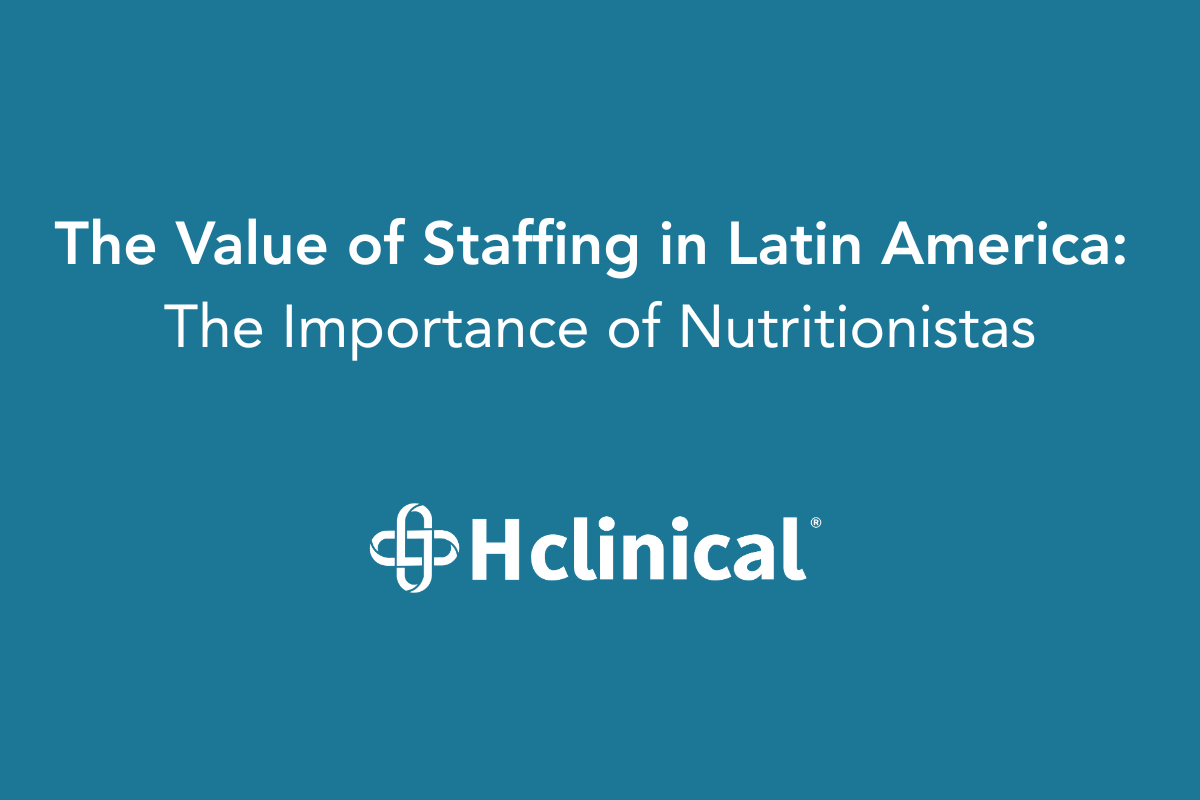Staffing in Latin America: Why Local Nutritionistas Matter

Staffing in Latin America is growing when it comes to clinical research and commercial patient support programs. Successful trials in the region depend on well-rounded, locally recruited site teams. While Clinical Research Coordinators (CRCs), Patient Relationship Coordinators (PRCs), and medical doctors (MDs) are essential, one often-overlooked role is that of the nutritionista—a clinical nutrition expert also known as a dietician outside Latin America.
Dieticians or Nutritionists? In LATAM, They’re Nutritionistas
Nutritionistas are critical to many therapeutic areas and research impacting medical nutrition programs. These include cardiovascular disease, diabetes, obesity, oncology, and rare metabolic disorders. In trials with dietary interventions or nutritional tracking such as digestive health and malnutrition, these specialists help maintain protocol fidelity, patient understanding, and treatment adherence.
Nutritionistas also play a key role in patient engagement. In Latin America, food is deeply tied to culture and tradition. A locally based nutritionist understands not only dietary guidelines but also what patients eat in their daily lives. This cultural insight leads to better communication and tailored guidance that fits the patient’s lifestyle.
Staffing in Latin America: Why Local Nutritionistas Matter?
Staffing nutritionistas locally ensures trials and commercial patient support programs run more smoothly and with greater impact. Unlike foreign subcontractors who may attempt to provide remote dietary oversight, local professionals can attend site visits, conduct in-person counseling, and provide immediate feedback to site teams.
One example is a metabolic trial in Mexico that required ongoing nutritional assessments. Sites that used local nutritionists had higher protocol compliance, fewer missed visits, and improved patient satisfaction. Sites relying on remote dieticians struggled with delays and engagement.
Research Succeeds When Working Locally
These benefits extend beyond nutrition. Latin American trials succeed when all staffing is done locally. Clinical trial educators, project managers, PRCs, CRCs, and MDs all benefit from shared culture and geographic proximity. Staff based near research sites reduce travel costs and allow flexible scheduling. They also boost recruitment, as patients are more comfortable with familiar, trusted professionals.
When outsourcing staffing to global vendors who operate outside the region, it’s helpful to confirm some key community-based capabilities. These include a complete understanding of language fluency, cultural context, and the regulatory landscape. Additionally, regional partners with established infrastructure and networks can deliver these capabilities and source qualified staff quickly.
Local Staffing Advantages
Latin America offers strong cost advantages for clinical research. But those advantages can be challenged when sites rely on offshore subcontracting to manage staffing. Local sourcing keeps costs low, simplifies logistics, and reduces delays.
The Tufts Center for the Study of Drug Development also notes that rising protocol complexity increases the burden on site staff [1]. More procedures and data points demand skilled professionals who can adapt quickly. When local experts—especially nutritionistas—are part of the team, patients receive clearer, more personalized guidance. That leads to fewer protocol deviations and stronger data.
Trust is essential for trial retention. When staff speak the same language and understand local norms, patients are more likely to stay engaged. Nutritionistas, in particular, help bridge the gap between strict protocol requirements and real-world eating habits. This is especially important in long-duration trials with lifestyle components.
The H Clinical View
In summary, successful clinical trials in Latin America that involve a focus on dietary or nutritional requirements, depend on more than just CRCs and physicians. Nutritionistas provide essential support in studies requiring dietary counseling and monitoring. Hiring them locally ensures cultural fit, higher compliance, and a better experience for both patients and sites.
By choosing in-country staffing partners instead of foreign subcontractors, sponsors reduce costs, avoid delays, and improve trial outcomes. The future of clinical research in Latin America is local, and nutritionists are a vital part of that success.
Sources
- Pharma Times. Protocol complexity is increasing trial burden, Tufts study says.
https://pharmatimes.com/news/protocol_complexity_is_increasing_trial_burden_tufts_study_says_985956/

We simplify complex clinical trials across Latin America.
H Clinical simplifies complex clinical trials to meet the needs of all patients and studies. We are the leader in delivering localized, community-based, patient-centric clinical trial services and home healthcare throughout Latin America. At H Clinical, we’re bringing clinical research home.
-
TAMPA - U.S./CORPORATE HEADQUATERS
7901 4th St N, Suite 5706 St. Petersburg, FL 33702 -
MEXICO CITY – CENTRAL AMERICAN HEADQUARTERS
Av. Álvaro Obregón 121, Piso 7 Colonia Roma Norte Cuauhtémoc, Ciudad de México, C.P. 06700 -
SAO PAULO – SOUTH AMERICAN HEADQUARTERS
Rua Salviano Jose Da Silva, No 225 Bairro El Dorado, Sao Jose Dos Campos, SP, Brazil


